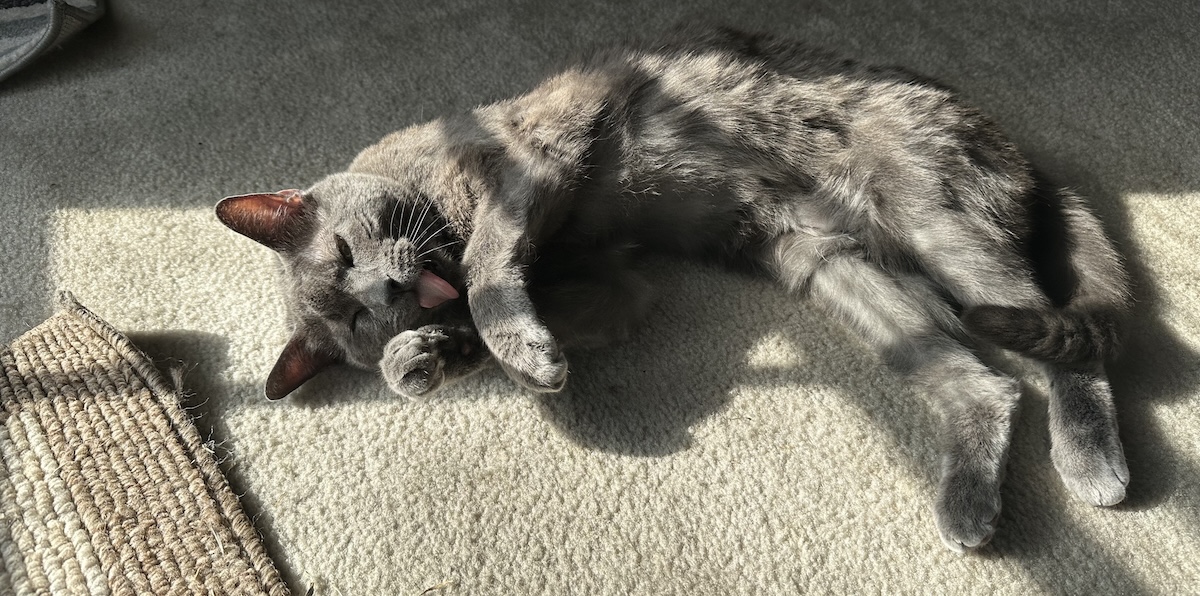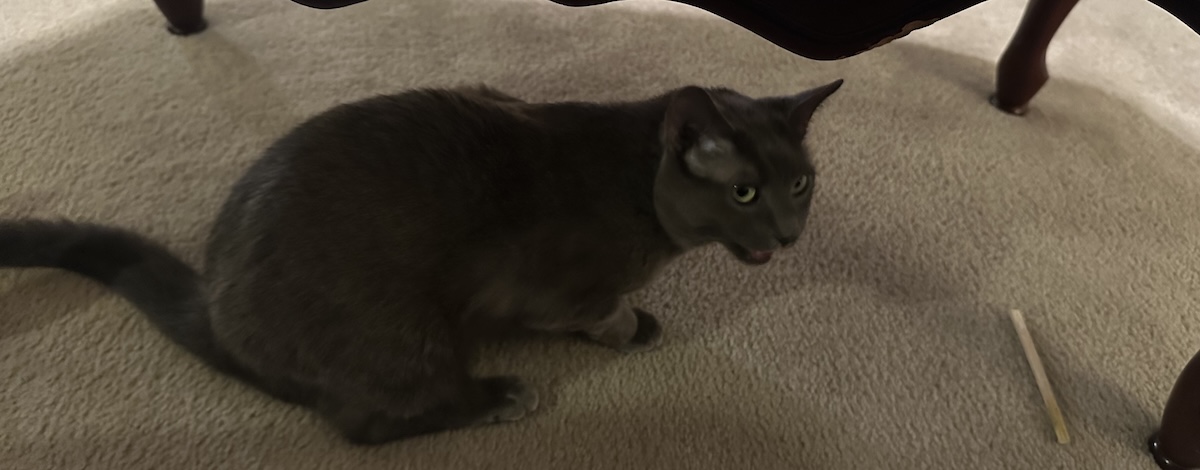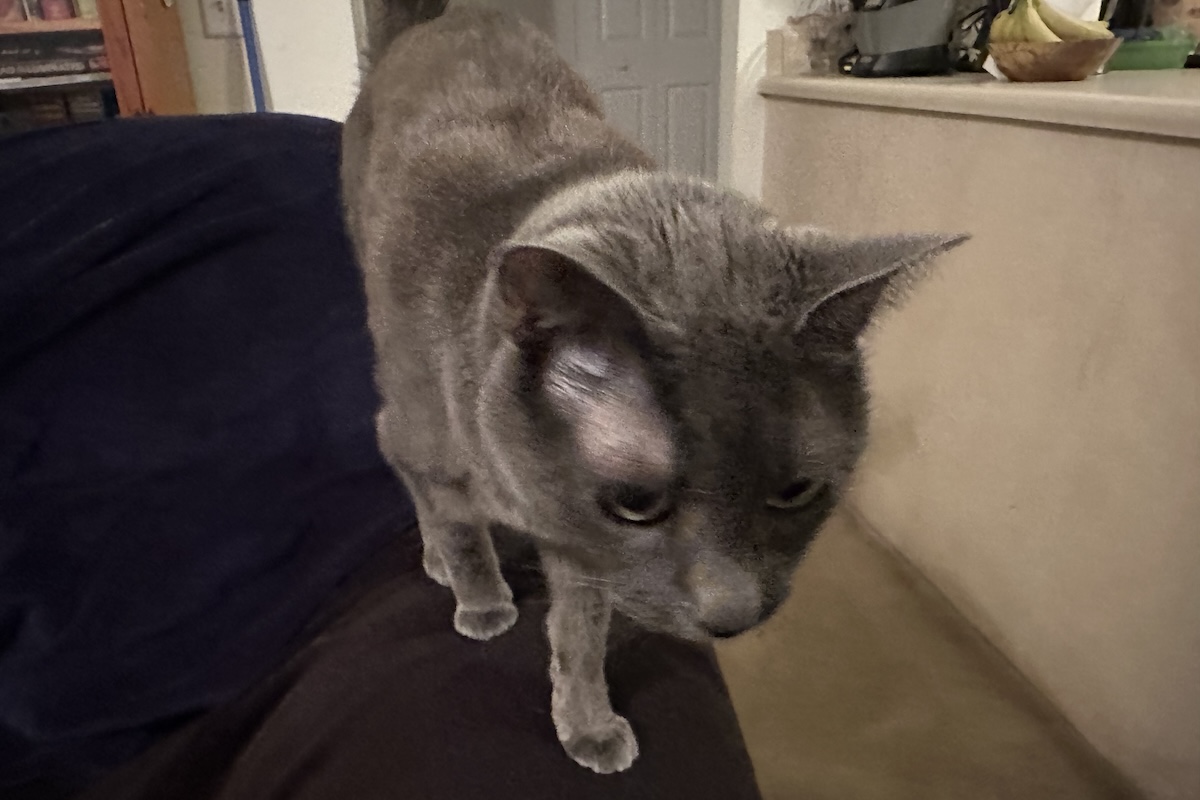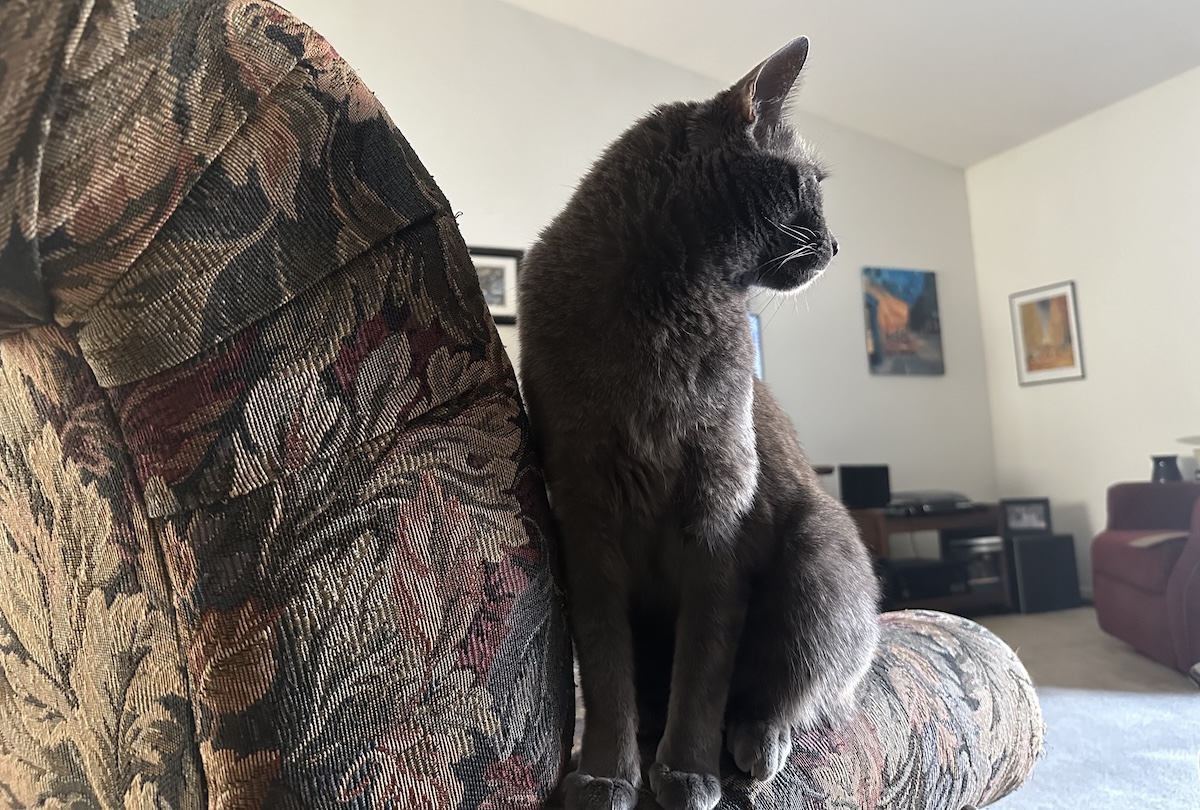Hi, I’m Christopher! Read my introduction to learn more about me and my silly Russian Blue cat, Olga.
The African Wildcat (Felis silvestris lybica) is the ancestor of domestic cats. Although they aren’t endangered, they’ve suffered from interbreeding with housecats. They can catch the same diseases as pet felines, and the healthiest populations live in arid, mountainous regions away from human settlements.
Olga doesn’t need to hunt for her food and cannot sit up as straight as an African Wildcat. African Wildcats have longer front legs, and when they’re in a sitting position, their poses resemble those depicted in drawings by ancient Egyptians. However, that’s where their differences end; she’s just as wild as Felis lybica, but she’s trapped in a suburban home.

Feline and Canine Domestication
Cats seem wilder than dogs because humans haven’t selectively bred them for specific traits for very long. The farmers in the Fertile Crescent didn’t train their new friends to hunt rodents and had no need to manipulate their breeding pool.
They provided shelter, and the cats were happy to prowl around and eat rats. On the other hand, dogs have been with us since the Mesolithic Age when we were hunter-gatherers. We domesticated them before other mammals and trained them to be hunters, guardians, and companions.

Olga’s Wild Ways
Like most felines, Olga doesn’t want or need to perform a service that benefits humans. She’s an African Wildcat with a gray coat who loves attacking inanimate objects. It took years before she became comfortable sitting in my lap, and she still has a low tolerance for excessive petting.
She’s not as agile or athletic as my last cat, but she’s wilder.
I read a story on an exotic cat forum that reminded me of Olga. An owner of an African Wildcat mentioned that his cat wasn’t much different than a Domestic Shorthair, but he had scars on his legs and arms from her playful attacks. He also said that the cat was more affectionate in the daytime, and she became more aggressive when the sun went down.
After Olga has had her ninth or tenth nap of the day and enjoyed a healthy meal before dusk, she gets a boost of energy. It’s strange because she acts more like a hunter when her belly is full. She runs laps around my house and attacks the back of my legs if I get in her way.

An Owner’s Duties
If I ignore her, she slams my bedroom door and howls if she has trouble opening it. She wants me to participate in her hunting games but only from a distance. Besides being her caretaker, Olga also thinks I’m an estate manager or gamekeeper.
I’m in charge of keeping the property stocked with wildlife (toys), and if I fail in my duties, I don’t get fired like a manager of an English estate; I become the prey. I admire Olga’s wild nature and am glad she acts more like her ancestors than her cousins. Although I don’t have a rodent problem, I can always count on my blue panther to keep my home insect-free.
